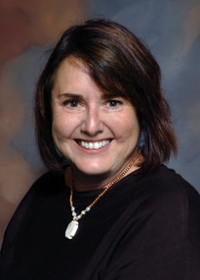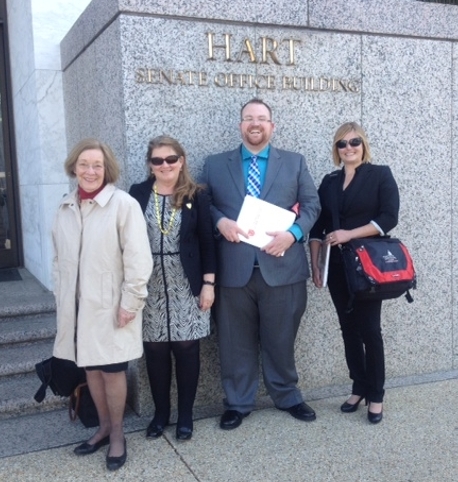"I came to the realization during my DC MUSE project that if we, as nurses, do not take our seat at the table, and use our knowledge and voice to influence the evolution of the health care system, someone else will," says Robby Reynolds of the influence his participation in the DC MUSE has had on his studies at the College of Nursing.
A cutting-edge building and nationally renowned faculty are major reasons why the University of Utah College of Nursing is a leader in the preparation of nurses. But even we recognize our limitations.
In order for nursing students to fully harness what they learn in our classrooms, they must explore beyond the walls of the college and put knowledge into practice. As director of the My University Signature Experience (MUSE) Project, Assistant Professor Linda Edelman, PhD, MPhil, RN, is helping nursing students to do just that—by engaging in MUSE programs such as community engaged learning, undergraduate research, global health and health policy.
“The College of Nursing has a strong foundation of opportunities for students to pursue hands-on experiences in research, education or practice,” says Edelman. “As a university-wide presidential initiative, MUSE is making it possible for us to increase awareness of these programs among not only nursing students, but also pre-nursing students.” Edelman says that MUSE projects can help define a student’s career path in nursing. “I’ve seen students who were not necessarily interested in working with older adults become engaged in gerontology or geriatrics, simply from having the chance to interact with the older adult population.”
Edelman’s own passion for undergraduate research (she has mentored students through the Undergraduate Research Opportunities Program) played a significant role in her decision to apply for the position of director of MUSE projects within the College of Nursing. “It is crucial that we impress upon all nursing students the importance of applying evidence based nursing research findings to the care of their patients,” she says. Other MUSE projects foster engagement in community service, public health and global health. “I love to watch the excitement in students as they begin to consider how they can parlay their preparation as a nurse into making a difference outside of work,” Edelman says. “Hopefully students come away from their MUSE project with a sustained commitment to giving back to their community.”
Regardless of a student’s intended career paths, Edelman believes all students will emerge from MUSE better prepared to interact with diverse populations, and more knowledgeable of the influence culture, society and policy have on health care delivery. Case in point: undergraduate nursing student Robby Reynolds, who was one of two students selected to participate in the first-ever Washington, DC MUSE Project last May. During the DC MUSE immersion, which was created by College of Nursing alumni Eileen Engh (BSN, 1982) and Ansilene Ozberkmen (BSN, 1957), Reynolds had the opportunity to learn about the role of nursing in health policy. He found a session on nursing informatics at Children’s National Medical Center particularly inspiring. “Through my MUSE project, I had a chance to meet with researchers behind IMPACT DC, a clinical and educational intervention program that is strengthening the linkages among those providing asthma care to children in the nation’s capital,” Reynolds says. “As a result, I now have a better understanding of how nursing research can help all nurses advocate not only for our patients, but also for the communities we serve.”
Katie Schrier
Katie Schrier is the Communications Manager for the College of Nursing.
